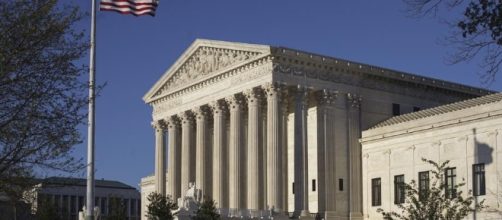The Supreme Court has agreed to partially enforce President Donald Trump's and his administration's controversial 90-day travel ban on travelers from six majority-Muslim countries. This decision has overturned the ruling that lower courts have made to block the ban. For now, this decision gives President Trump the largest legal victory of his young presidency, in what has also been the biggest legal controversy during his time in office.
Previous lower court rulings
In May, the 4th U.S. Circuit Court of Appeals upheld lower court rulings that blocked President Donald Trump's travel ban.
About two weeks ago the 9th U.S. Circuit Court of Appeals also upheld lower court rulings to block the travel ban. Trump's administration had appealed the decision by the 4th Circuit Court decision to the U.S. Supreme Court. The travel ban has been struck down on the verdict of it being religious discrimination, bias based on nationality; that it exceeded the President's authority since there was not a strong enough national security justification.
The Supreme Court's decision
In a majority decision by the Supreme Court, it has been agreed to temporarily stay injunctions by the lower courts so that only certain parts of President Donald Trump's travel ban can go into effect. This means that the ban can be implemented against some travelers, and there will be a long-delayed review of the vetting procedures used to screen foreigners entering America.
The court also agreed to hear arguments on the case in October, as today was the last day of the court's term. In order for a temporary stay to take effect at least five of the nine Justices had to agree. For the court to decide to take the case, at least four of the nine Justices had to agree to hear the case. This means that the court could reverse their verdict when they hear the case if challengers can prove that it is unconstitutional.
Trump's travel ban
The executive order issued by President Donald Trump titled 'Protecting the Nation from Foreign Terrorist Entry into the United States' was issued back in March. For 90 days the act would ban the entry into the United States from anyone from Iran, Syria, Yemen, Somalia, Sudan and Yemen.
This travel ban would also suspend for 120 days the entry to America of refugees from anywhere on Earth. Last week, President Trump said that his travel ban would take effect in three days if it was cleared by the courts.


